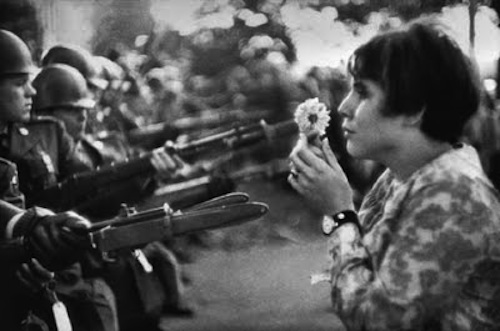In Ottawa there is a War museum. Last fall they had a very interesting exhibition called “Medicine at War.” A special section about the psychological effects of war was named “The Mind”.
Pictures and videos telling about different treatments that were used for those who showed distressful symptoms after combat and experience of war. Testimonies from soldiers, their relatives and commanders: the mother whose son who committed suicide when finally returning alive from Iraq, the UN General Dallaire who after not being allowed to act when realizing a genocide was being planned in Rwanda, and ever since have been traumatized, the Canadian soldier from Afghanistan saying: “The war is within you whatever you do, apart from that it was a perfect job…” , and the wife of a returning soldier: “It is frightening because you don´t know what kind of person you wake up beside – the nice guy you married or the angry, violent one he also has become since coming back form the war.”
There have been many theories about what the symptoms were caused by and what could be done about them. A concept of Vietnam Syndrome – later renamed PTSD – Post Traumatic Stress Disorder – was not publicized until 1981 after the Vietnam War and included as a diagnosis in the DSM III, the bible of psychiatric diagnosis. This is what generally would be called trauma.
Before that these kind of symptoms were considered being a fatigue/tiredness of combat, ie something you were supposed to heal from by resting for some time. After resting one would be sent back to the battle field. It was called things like: exhaustion, War neurosis and the patients were called war shakers, war tremblers etc. Some were condemned to war crime and executed because they could not fight when sent back to the front. Instead they collapsed or got “crazy”.
One of the first filmed documentations about the psychological effects of war was done in 1946 by the famous filmmaker John Houston: “Let there be light”. If you are interested check this link:
The film was banned for many years by the American authorities according to some because they did not want to show the devastating psychological effects of war.
Now there is recognition that war and similar experiences can cause severe psychological problems. According to the statistics 20 percent of the returning american soldiers would be diagnosed with PTSD. This means 300 000 former soldiers from different US wars are traumatized. And the consequences are showing: many of them lose their jobs, get homeless and end up in prison. Their traumas create violence and difficult to live in peace with others. Some
In US there is a so called Veteran´s day on the 11 of november, a day for recognizing the deeds and sufferings of the so called “Vets”, the War Veterans i e the former soldiers. In Canda the same day is called Remembrance Day which then includes also the victims of war. Just in the Vietnam war hundreds of thousands of people were killed and many still suffer from the chemicals used. And how many are traumatized?
At the end of the exhibition there is a conclusion:
“War and violence can cause invisible injuries. /../The lingering effects of war on the mind can last long after the fighting ends. The importance of medicine at war is to save lives and to restore hope to those traumatized in war”.
This means that it is still considered difficult or impossible to heal the traumas of war. “Restore hope” is not healing. But for us working with Energy Psychology and different Tapping protocols in conflict and post-conflict areas as well as with returning soldiers in for example the US or Canada know that it is very possible to heal war traumas. Keep spreading the word about the advantages of EP and Tapping to those in need. Victims and perpetrators. Military and civilians.There is a campaign going on in the US to highlight the healing possibilities for war trauma with Energy Psychology – and in this case specifically with the technique called EFT- Emotional Freedom Technique:
http://www.change.org/petitions/how-to-heal-the-sights-and-sounds-of-combat-trauma
A very good film showing the consequences of war in soldiers and their families is “Brothers” by the Danish director Susanne Bier. Highly recommended!

